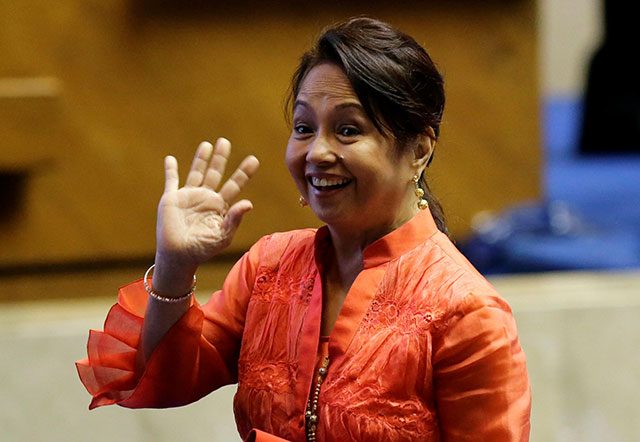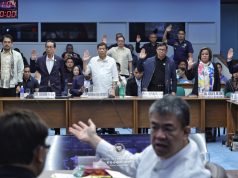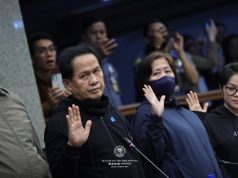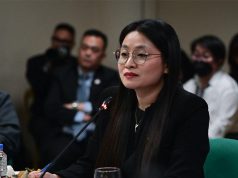House Speaker Gloria Macapagal-Arroyo’s plan to recommend the Philippines’ withdrawal from the Inter-Parliamentary Union could lead to the country’s departure from an international body for the second time in less than a year.
Arroyo on Monday said that the organization’s plans to probe the cases filed by the administration against opposition senators Antonio Trillanes IV and Leila de Lima would be the second time it interfered with the Philippines’ judicial process.
“Since it’s the second time they did it to my knowledge, I am recommending to the Senate, which heads the delegation, that we should withdraw our membership in the IPU,” she reportedly said on Monday.
The IPU at its recently concluded 139th assembly in Geneva, Switzerland criticized the filing of drug charges against de Lima in 2017 that led to her incarceration and the reopening of dismissed rebellion charges against Trillanes in 2018.
It called for De Lima’s release and urged its Committee on the Human Rights of Parliamentarians to conduct a follow-up visit on the detained lawmaker.
The group also urged the Philippine Senate to ensure that Trillanes’ rights would be protected, claiming that President Rodrigo Duterte’s Proclamation 572 revoked the amnesty granted to the former mutineer-turned lawmaker could lead to a violation of his right to fair trial.
“The Senate has a special responsibility to help ensure that its colleagues participate in its deliberations and speak out when they face reprisals for their work,” the group said in its resolution at the assembly.
The Palace slammed the IPU following its resolution on the de Lima and Trillanes cases, calling it “an affront to the core of [The Philippine] state’s principles.”
Presidential spokesperson Salvador Panelo said the IPU’s plan to intervene cast the country “in a bad light.”
“It is apparent this organization of foreign parliamentarians does not respect the ongoing proceedings being conducted by our courts of justice when it reached an incredible solution on the cases involving senators De Lima and Trillanes,” Panelo said on Monday.
The Palace later backed Arroyo’s plan to recommend the country’s withdrawal from the international group.
Some expressed concern with the idea of departing from another international group.
Yes, let's isolate the Philippines from international ethics watchdogs. That will get investors here, for sure. Yep. Oh, yeah. Way to build confidence in the Philippines. https://t.co/WWCLDWC3Cu via @inquirerdotnet
— JoeAm (@societyofhonor) October 22, 2018
The present Philippines' leadership will withdraw it's Mickey Mouse Club membership if Mickey deems it's necessary for Disney to investigate human rights violation in the country. https://t.co/IrU3Yeg3q5
— Don RB (@donthebasher) October 22, 2018
Members of the Senate appear to be divided so far.
Sen. Ping Lacson, in a tweet disagreed with the IPU on conducting its mission but in a later statement said that a withdrawal from the organization would be premature as it has yet to act on the resolution.
Senate Minority Leader Franklin Drilon, a former chairman of the IPU Committee on Human Rights of Parliamentarians, also opposed the move.
“Arroyo’s proposal is despairing, defeatist and will be seen by the world as a tacit admission that indeed critical lawmakers are being persecuted under the Duterte administration,” he said.
Lacson and Drilon were members of the Senate delegation that attended the 139th assembly.
Senate President Vicente “Tito” Sotto III in an interview with the media criticized the IPU’s decision to probe the country, saying that Philippines is “a sovereign state with a working judicial process.”
The Senate heads the Philippines’ delegation to the organization.
Another withdrawal?
Arroyo’s plan comes less than a year since the Philippines’ withdrawal from the Rome Statute that created the International Criminal Court in March 2018.
A petition against the withdrawal has been filed with the Supreme Court.
The IPU, established in 1889, is an organization with parliamentarians or legislators from 178 member-states. It has served as a forum for multilateral negotiations for the states represented by its members.
It started its probe of the cases against de Lima as early as 2017 when the opposition legislator was first charged.










